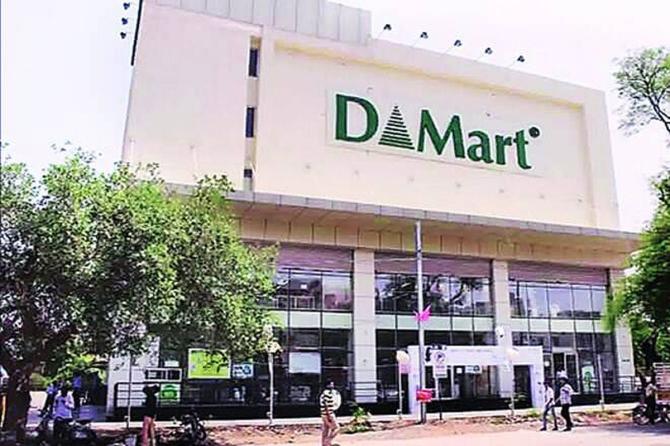Discount retailer DMart (Avenue Supermarts) hit its highest levels in a year and a half last week and is up over 11 per cent in the last one month.

The company depends on low operating costs to offer the lowest prices to consumers, which enables sales velocity and scale, further reducing costs.
This virtuous feedback loop has helped DMart gain market share in a sector dominated by unorganised stores.
DMart is also scaling its private labels, which may drive the next phase of market share gain.
Right now, its share in the estimated $500 billion urban food and grocery market would be less than 1 per cent.
It, however, could grab 5 per cent share in a market that is expected to expand to over $2.3 trillion in the next 20-25 years.
The company is growing across new geographies as well as building store density.
Walmart has 1 store per 100,000 people in the US. DMart has 341 stores now.
Although achieving Walmart’s levels of density is unlikely, given India’s population (almost 5 times of the US), there’s room to grow.
Globally, DMart is among the lowest-cost retailers.
It deliberately went slow on private labels in order to avoid competing with suppliers and key brands.
But it has steadily increased private-label offerings and believes they can be a key differentiator.
Private brands are offered at a 20-40 per cent discount compared to popular brands.
Q3 FY24 performance was in line with sales and operating profit growth of 17 per cent and 15 per cent Y-o-Y, respectively.
On a four-year annualised basis, revenue growth was at 18 per cent compared to 20 per cent in Q2 FY24.
Profitability was impacted. Gross margin and operating profit margin, at 14.2 per cent and 8.5 per cent, respectively, are down by 9 basis points (bps) and 15 bps Y-o-Y, respectively.
This was due to lower contribution from general merchandise.
The demand for general merchandise was weak during the festival period, but the management said that post-Diwali, its contribution is stabilising.
DMart added five stores during Q3, taking the total count to 341 with 14.2 million square feet of space.
The pace of addition (17 new stores during 9M FY24) is lower than the guidance of adding 40 stores a year. In Q3 FY24, standalone revenue grew by 17.2 per cent to Rs 13,250 crore driven by agro-staples and FMCG and store expansion.
Within the FMCG segment, agri-staples (ex-edible oil) are witnessing significant inflation.
During the festival season, general merchandise sales were lower due to weak consumer demand.
Staff costs and other expenses grew by 21 per cent and 18 per cent Y-o-Y, respectively, to Rs 200 crore and Rs 560 crore.
Operating profit was up by 15 per cent Y-o-Y to Rs 1,120 crore but operating profit margin contracted 16 bps to 8.5 per cent.
Depreciation grew 15 per cent Y-o-Y to Rs 160 crore, while interest costs declined 8 per cent to Rs 11 crore.
Other income increased 10 per cent to Rs 44 crore.
Recurring net profit increased 15 per cent Y-o-Y to Rs 740 crore while effective tax rate was flat at 25.7 per cent.
On a unit basis, Q3 revenue per store and revenue per square feet grew 5 per cent and 4 per cent, respectively.
This is similar to the trend over the last four quarters.
A recovery in general merchandise and apparel would be important for revival of the growth rate.
The stock remains highly valued at a long-term average multiple of 74 times the earrings.
Most analysts are still optimistic about the prospects though they have flagged a slowdown in growth trends and margin compression.
Disclaimer: This article is meant for information purposes only. This article and information do not constitute a distribution, an endorsement, an investment advice, an offer to buy or sell or the solicitation of an offer to buy or sell any securities/schemes or any other financial products/investment products mentioned in this article to influence the opinion or behaviour of the investors/recipients.
Any use of the information/any investment and investment related decisions of the investors/recipients are at their sole discretion and risk. Any advice herein is made on a general basis and does not take into account the specific investment objectives of the specific person or group of persons. Opinions expressed herein are subject to change without notice.












 © 2025
© 2025